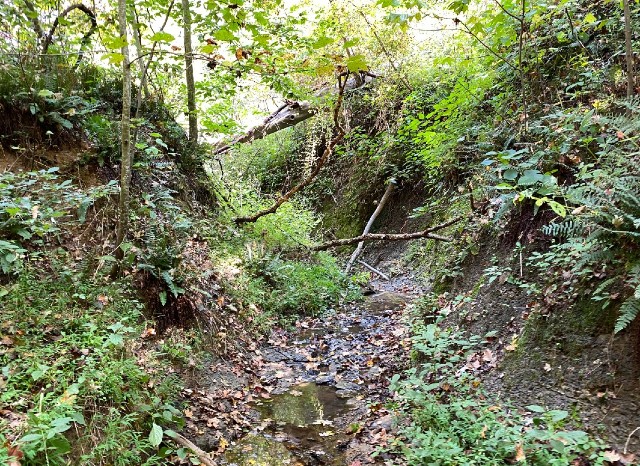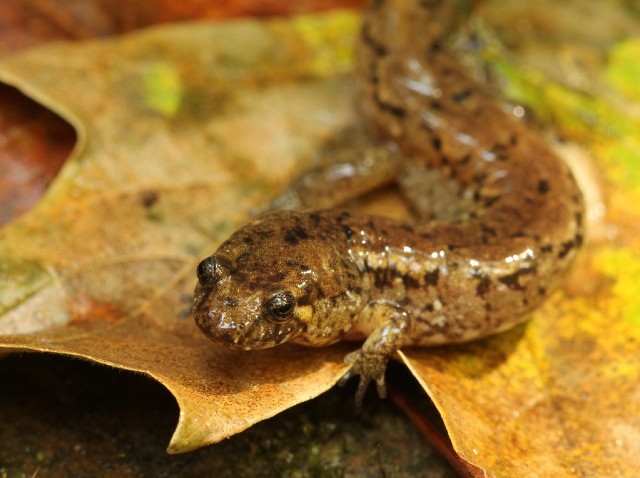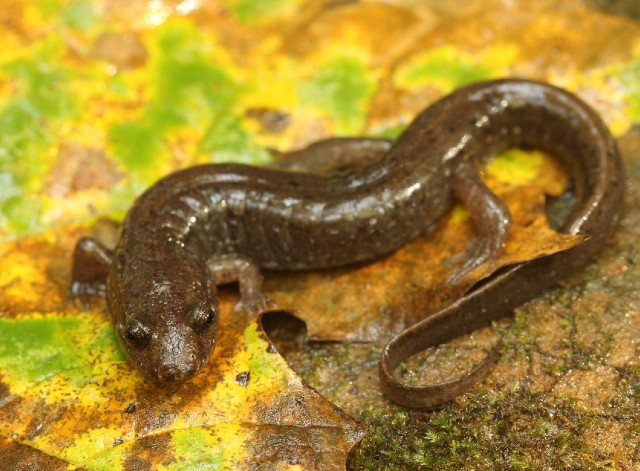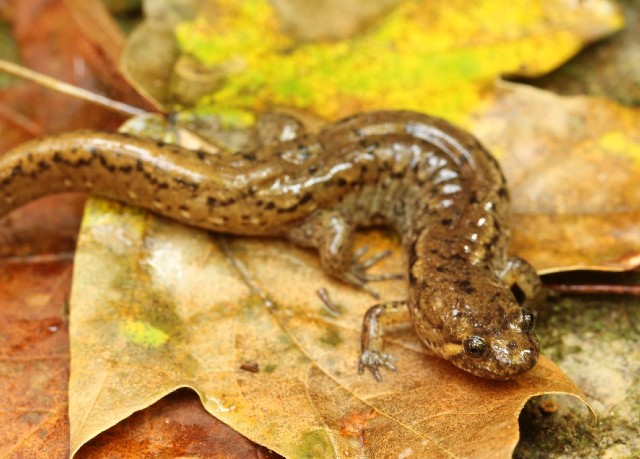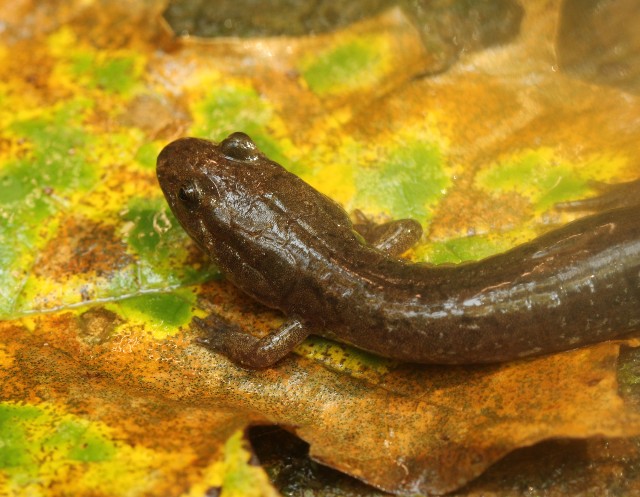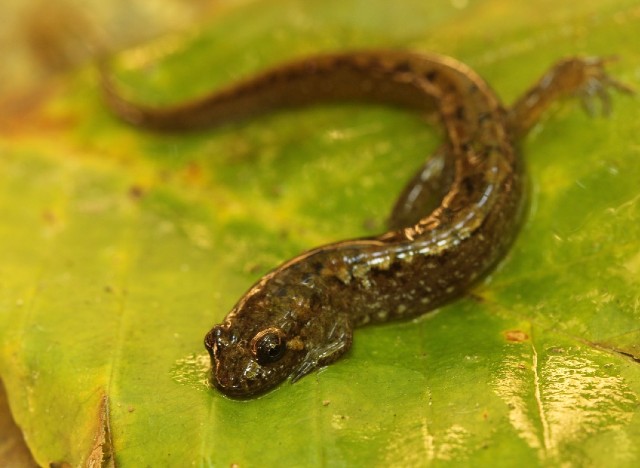This was a neat “lifer” that I encountered on my recent visit to southern Illinois. It only resides in Pulaski and Johnson counties in the southern part of the state. I found several in a small creek.
The Spotted Dusky Salamander’s coloration is variable from tan to brown to nearly black. It frequently has 6 to 8 pairs of golden or reddish dorsal spots, which are normally separated, but may fuse to form a light-colored band.
This species occurs along small lowland streams and in seepage areas, where it hunts for and eats earthworms, spiders, mites, centipedes, millipedes, beetles and other insects.
Dusky Salamanders are of the genus Desmognathus, derived from the Greek word desmos, meaning “ligament,” and gnathos, meaning “jaw.” It refers to the visibly enlarged bundle of ligaments on the sides of the heads of these salamanders.
Species of this genus have a unique jaw-opening mechanism where the lower jaw is stationary and the skull swings open. Its skeletal and musculature features have evolved to accompany this type of jaw-opening mechanism.
Sometimes referred to as a “Spring Lizard,” Spotted Dusky Salamanders are known to exhibit maternal care by brooding over their eggs.

